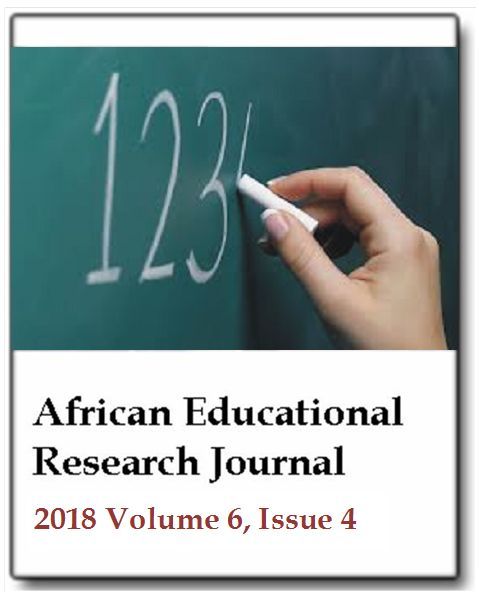Teachers’ perception of job satisfaction and retention in Ghana: Perspectives from special needs educators
Felix Kwame KumedzroAfrican Educational Research Journal
Published: November 12 2018
Volume 6, Issue 4
Pages 262-268
DOI: https://doi.org/10.30918/AERJ.64.18.075
Abstract
The study aimed at examining special education teachers’ perception of job satisfaction and retention in Ghana. Specifically, the study sought to find out if teachers’ perception of their job has any impact on their retention in the special schools. The study employed descriptive survey design and utilized quantitative methods in data collection and analysis. Data for the study was collected from 140 teachers sampled across the country from the three categories of special schools in Ghana. In this study, the independent variable of teachers’ perceptions of their job satisfaction was examined to find out their effect on the dependent variable of teacher retention. Descriptive statistics including frequencies and percentages were computed. Further statistics such as regression analysis and independent sample t-test were also employed. The study found that generally, the three categories of teachers expressed dissatisfaction of their job and indicated that given the opportunity, they would quit the job of teaching in special schools. The test statistic revealed that there were no statistically significant differences among the teachers in these three school categories in relation to their job satisfaction and retention. The study further found that teachers with more teaching experience in the special schools were more satisfied with their jobs compared to those with less teaching experience. The study recommended that the Ministry of Education through the Division of Special Needs Education should recognize the unique and challenging roles of special school teachers and motivate them to remain in the special needs schools. These teachers can be recognized through the Annual National Best Teachers’ Awards.
Keywords: Perception, retention, job satisfaction, special needs education.
Full Text PDFThis article is published under the terms of the Creative Commons Attribution License 4.0

